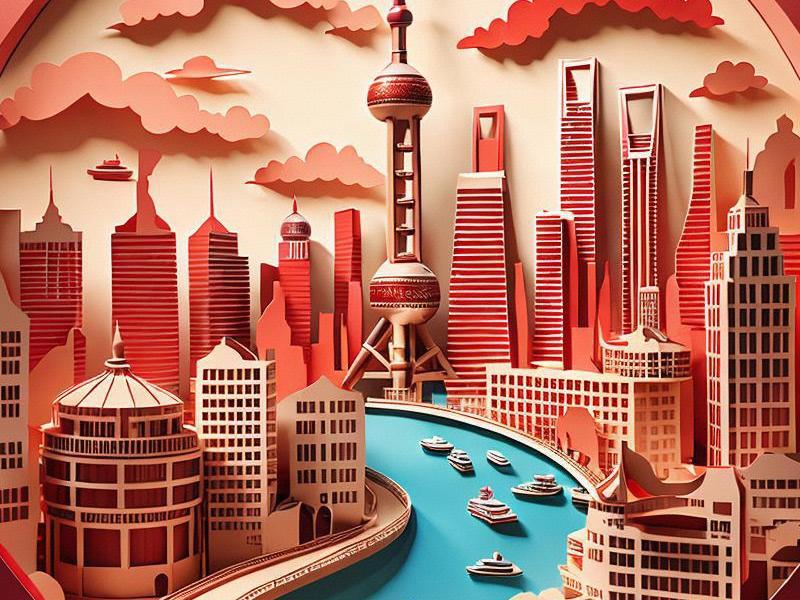Shanghai, a vibrant metropolis on the eastern coast of China, is a city that seamlessly blends tradition with modernity. Known as the "Pearl of the Orient," Shanghai is not only a significant economic hub but also a cultural melting pot that attracts millions of visitors from around the world. This article delves into the multifaceted aspects of Shanghai, exploring its history, culture, economy, and global significance.

Shanghai's history dates back over two thousand years, but it was in the 19th century that the city began to transform into the cosmopolitan center it is today. The Treaty of Nanking in 1842 opened Shanghai to foreign trade, leading to the establishment of the International Settlement and the French Concession. These areas became hubs for commerce and culture, with a mix of Western and Chinese influences that can still be seen in the city's architecture and cuisine.
The Bund, a waterfront area in the heart of Shanghai, is a testament to this historical blend. Once lined with British and American banks and trading houses, the Bund now offers stunning views of the futuristic skyline of Pudong across the Huangpu River. The juxtaposition of these two worlds—traditional Chinese architecture and modern skyscrapers—is a visual representation of Shanghai's unique identity.
Culturally, Shanghai is a city that celebrates diversity. The city is home to a variety of cultural institutions, including the Shanghai Museum, which houses an impressive collection of Chinese art, and the Shanghai Grand Theatre, which hosts a wide range of performances. The city's vibrant art scene is also worth mentioning, with galleries and street art installations scattered throughout the urban landscape.
Shanghai's culinary scene is another highlight, offering a fusion of traditional Shanghainese dishes and international flavors. From the famous Xiaolongbao (soup dumplings) to modern fusion restaurants, the city's food culture reflects its cosmopolitan nature. The night markets and bustling food streets provide an authentic taste of local life, while high-end dining establishments cater to the tastes of international visitors.
爱上海同城对对碰交友论坛
Economically, Shanghai is one of the most important cities in China and the world. As a global financial center, it plays a crucial role in international trade and commerce. The city's well-developed infrastructure, including its port, which is one of the busiest in the world, and its advanced transportation network, makes it a key player in global logistics.
The Pudong New Area, developed in the late 20th century, is a symbol of Shanghai's economic transformation. Home to the iconic Oriental Pearl Tower, the Jin Mao Tower, and the Shanghai Tower—each a marvel of modern architecture—the area is a hub for business, finance, and tourism. The Lujiazui Financial District, located here, is where many of the world's leading financial institutions have established their presence in China.
Shanghai's importance extends beyond its economic prowess. It is a city that bridges the East and the West, serving as a cultural and educational exchange hub. The city is home to numerous universities and research institutions, attracting students and scholars from around the globe. The Shanghai Cooperation Organization (SCO), a regional intergovernmental organization, also has its headquarters in the city, highlighting its role in international diplomacy.
上海龙凤论坛爱宝贝419
The city's commitment to sustainability and green development is also noteworthy. Initiatives such as the construction of the world's first maglev train line, which connects Pudong International Airport to the city center, demonstrate Shanghai's forward-thinking approach to urban planning. The city has also invested heavily in renewable energy and green spaces, aiming to crteeaa more sustainable future for its residents.
Tourism is a significant contributor to Shanghai's economy, with millions of visitors drawn to its attractions each year. In addition to the Bund and Pudong, popular destinations include the Yu Garden, a classical Chinese garden that offers a glimpse into the city's past, and the Nanjing Road pedestrian street, one of the busiest shopping streets in Asia.
Shanghai's ability to adapt and evolve has been key to its success. From a small fishing village to a global metropolis, the city has embraced change while preserving its cultural heritage. This dynamic spirit is reflected in the city's architecture, which ranges from historic Shikumen houses to cutting-edge skyscrapers.
上海龙凤419体验
The city's government has also played a crucial role in Shanghai's development. Through strategic planning and investment, the authorities have ensured that the city remains competitive on the global stage. Initiatives such as the Free-Trade Zone and the Cyberport have attracted businesses and innovation, further cementing Shanghai's status as a leading economic hub.
Shanghai's global influence is evident in its role as a host for major international events. The city has hosted the World Expo in 2010, attracting millions of visitors and showcasing its capabilities as a global city. It has also been a venue for international summits and cultural exchanges, reinforcing its position as a bridge between the East and the West.
In conclusion, Shanghai is a city that embodies the best of both tradition and modernity. Its rich history, vibrant culture, economic prowess, and global significance make it a fascinating destination for anyone seeking to understand the complexities of China in the 21st century. As Shanghai continues to grow and evolve, it remains a symbol of China's rise as a global power and a testament to the potential of urban development.